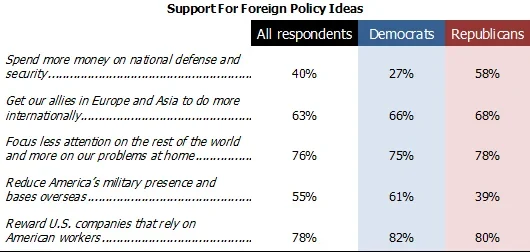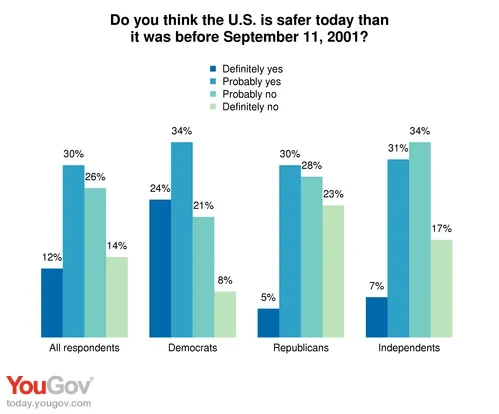(Week of 7/28/2012) There is evidence in the latest Economist/YouGov Poll that, even in today’s polarized political environment, there is some bipartisanship when it comes to at least a few foreign policy issues. But the areas of agreement have to do only with setting limits on U.S. non-military involvements overseas.
Republicans and Democrats agree on wanting America’s European Allies to take on more responsibility. They also would like to reward U.S. companies that rely on U.S. workers, and to focus more on problems at home. But while Republicans want to spend more on national defense and security, Democrats would rather reduce the number of U.S. military bases overseas.

34% of Americans view the Middle East as the region most critical to U.S. prosperity and security over the next ten years, with Asia in second place, Europe third, and Latin America and Africa far behind. There is a substantial party divide on this matter — 47% of Republicans view the Middle East as most crucial, while among Democrats that number is only 28%.
Democrats are a little more hopeful than Republicans that the United States will still be the world’s strongest country 30 years from now. But there is a partisan gulf when it comes to evaluating the country’s current position. 58% of Democrats say the country is safer now than it was before the terrorist attacks of 9/11; 51% of Republicans say it is not.

Independents also think the United States is less safe today.
Economist/YouGov poll archives can be found here
Photo source: Press Association







